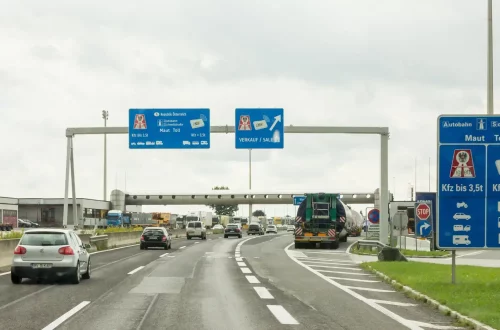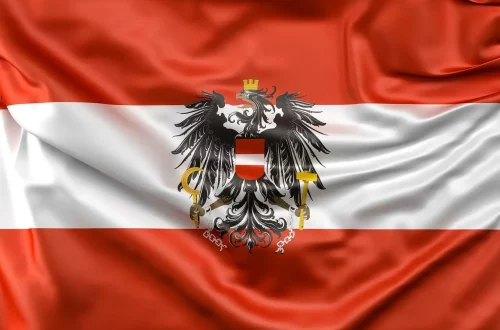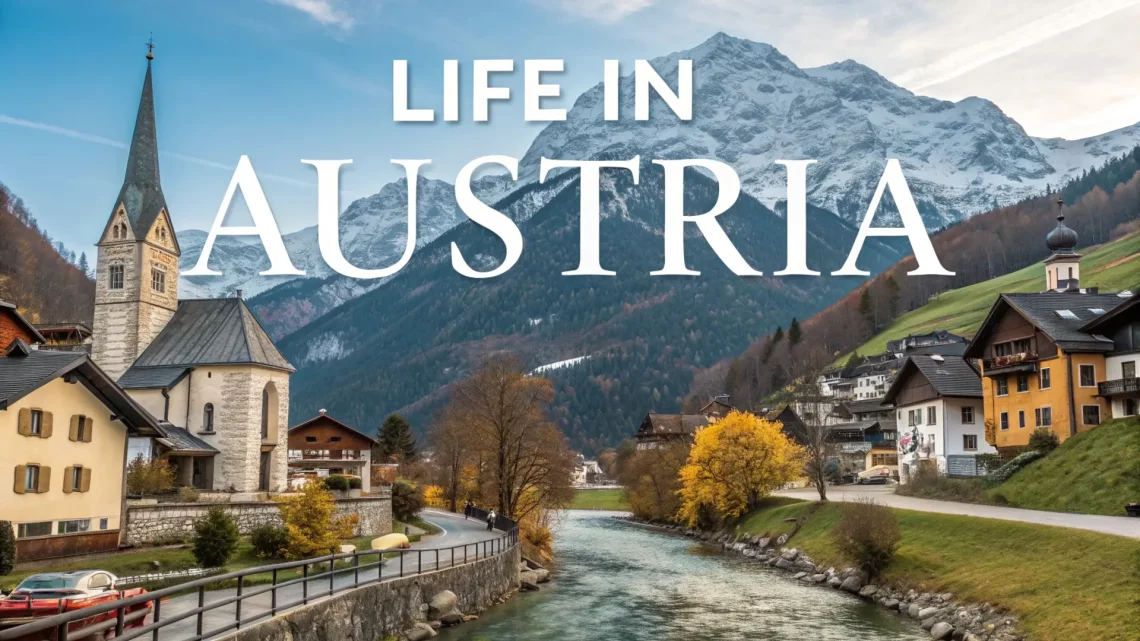
IG-L: What Does the Immission Protection Act-Air Mean for Drivers in Austria
The IG-L (Immissionsschutzgesetz-Luft) designation is well known to Austrian drivers. This term refers to speed restrictions, which are known as the “Luft-Hunderter”. IG-L is an Austrian federal law aimed at, among other things, reducing vehicle emissions.
To implement this objective, variable speed limits were introduced on designated sections of highways and roads. These restrictions come into effect when air pollution increases. This means that the “Luft-Hunderter” limit may be in effect on certain days in a specific section, while not on others.
When do the IG-L speed restrictions take effect?
Air quality monitoring stations operated by the regions continuously report current air pollution data to ASFINAG (Austrian Motorway and Highway Operator). The measured values are combined with various parameters (traffic data, weather). The IG-L speed limit comes into effect when the algorithms and thresholds defined by the respective region are met.
In Tyrol, for example, the road and environment-dependent speed limit for passenger cars was converted to a constant 100 km/h speed limit on the A12 and A13 highways. This means that this restriction is always in effect, regardless of air pollution data.
This is what it looks like on the highway when the restriction is active:
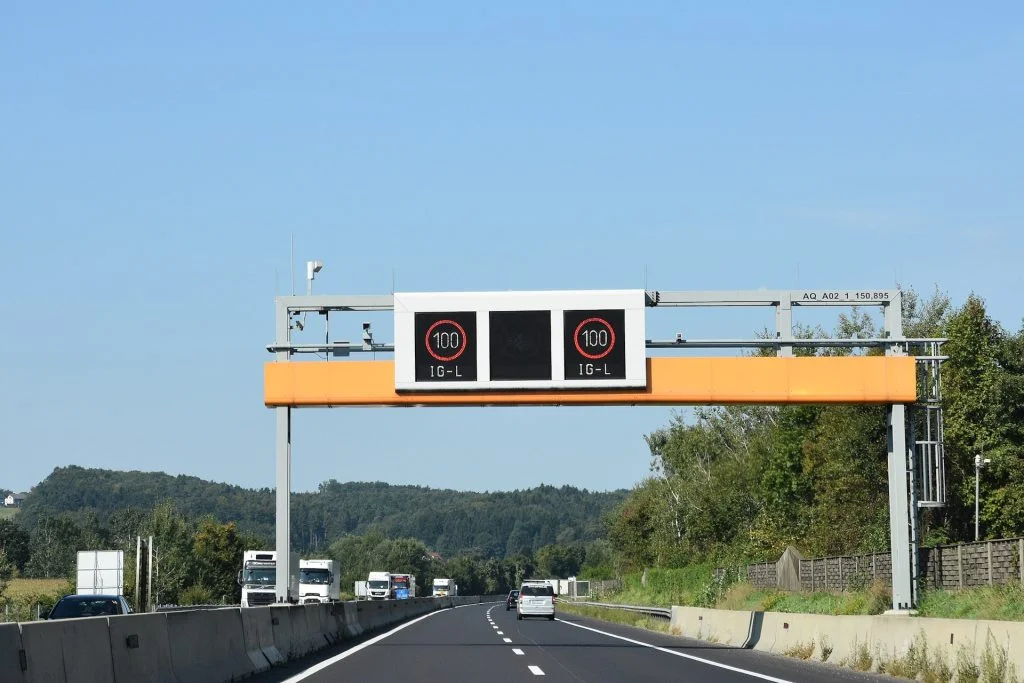
Where are IG-L speed restrictions?
Speed restrictions based on the IG-L are ordered by the regional governor in each province. Currently, they are valid for 400 kilometers on certain sections of highways and roads in Tyrol, Salzburg, Styria, Upper Austria, and Carinthia:
- Upper Austria: A1
- Salzburg: A1, A10
- Styria: A9, A2
- Tyrol (permanent 100 km/h speed limit): A12, A13
- Carinthia: A2
- Vorarlberg: A14
Exceptions for Electric Vehicles
Since July 1, 2019, purely electric vehicles and hydrogen-powered vehicles are exempt from IG-L speed restrictions on highways and motorways. Vehicles subject to this exemption are not required to comply with these speed limits under certain conditions.
The exception for electric vehicles, adopted in late 2018, serves among other things to encourage the strengthening of electric mobility in Austria. So-called plug-in hybrids must continue to adhere to speed limits.
The IG-L speed limit exceptions only apply to vehicles with green license plates. This license plate has been available for pure electric vehicles since April 2017, but is not mandatory. Those who wish can continue to use the black license plate on their electric vehicle – in this case, however, they are still required to comply with the specified speed limits like owners of vehicles with internal combustion engines.
Electric vehicles are exempt only on sections where warning signs indicate this. Until these warning signs are placed, speed restrictions ordered under IG-L remain in effect for all vehicles, regardless of their drive type and license plate.
This table indicates when green-plated vehicles are not subject to IG-L restrictions:
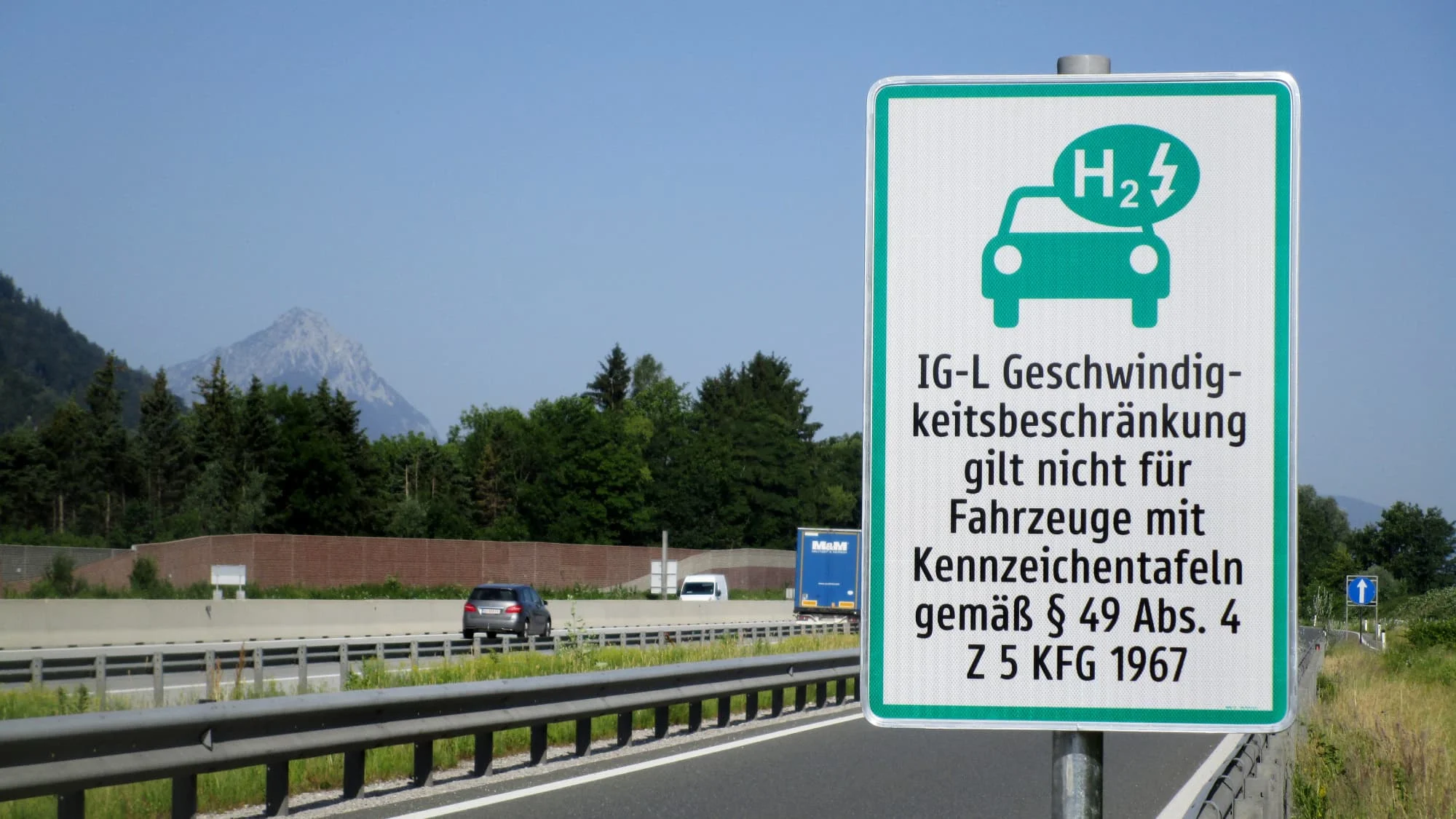
What Penalties Can You Expect for Violating IG-L Speed Limits?
In 2017, the Austrian Environmental Protection Ministry increased the penalty range for speeding in the IG-L area. Since then, even for exceeding the speed limit by up to 30 km/h, a fine of up to 90 euros can be imposed.
Important note: If we exceed the speed limit set by IG-L in addition to the speed limit determined by the StVO (road traffic regulations), further penalties may also apply for the latter.
Vehicle Restrictions and Other Rules Ordered According to IG-L
Based on IG-L, traffic restrictions for trucks have been imposed in certain areas. The current overview of truck traffic restrictions in individual provinces can be found on the Austrian Chamber of Commerce website.


